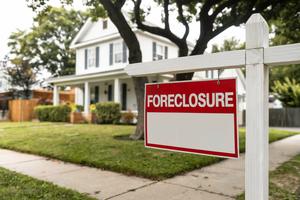Home & Leisure
/ArcaMax

Renter seeks advice on access to home’s pool while away on vacation
Q: We recently rented a home with a pool, and the pool service is included. For liability reasons we keep the screen doors to the lanai locked to prevent someone entering and falling in the pool. However, the pool service person needs access to clean and check water chemistry. So, we unlock the doors the day of service and relock upon his ...Read more

How to find information about an old property sale
Q: I’m in desperate need of your help. We bought a property in Virginia back in 2009 and sold it in 2011. We cannot remember the name of the bank where we got the mortgage. We need that information along with all the payment dates from time of purchase to the time we sold the home. What should we do?
A: We wonder why, more than 14 years later...Read more

Arizona resident hires paralegal to prepare trusts, estate plan
Reader comment: As you are attorneys, you may not like to hear that in Arizona, paralegals can prepare trusts and all the other goodies needed for the successful departure from this life, including a will, and powers of attorney.
Here’s how it worked for us. In 2014, we paid $1,000 to put our home into a living trust we had created. The fee ...Read more

Mother dies intestate, daughter seeks advice on transferring home ownership
Q: My mother passed away in January of this year. She died without a will. My house sits on land that was my mothers and is supposed to be mine. I just have to pay the back taxes to have it transferred in my name.
My sister gave me the tax bill, which has my mother’s name on it but was sent in care of my sister. She says she doesn’t know ...Read more

Homeowner left to pay all expenses after estranged husband transfers his ownership to his aunt
Q: My disabled sister has been separated from her husband. Her husband signed over half of the house to his aunt. My sister never signed that deed. So my sister is now stuck paying the taxes on the home without receiving any income. We think that he either forged her signature or they (her husband and his aunt) did something fraudulent for the ...Read more

Responding to the many comments regarding HOAs
To judge the contents of our inbox, people are having a lot of problems with their homeowner associations (HOAs). They’re also having trouble living in developments run by HOAs and by the lack of interest in serving on association boards. Here’s a sample of what homeowners are wondering about.
Comment: I read your recent article on HOA ...Read more

How to calculate capital gains from primary residence turned rental property
Q: We are selling our townhome this year that we bought almost 30 years ago. We lived there first for 17 years, as a primary residence and then we rented it. How do I calculate capital gain? Do we use the sales price or do we use the market price when we began renting it out?
A: Your question seems simple, but it’s actually complicated. We ...Read more

Trust beneficiary waiting months for share to be paid
Q: I was told I am a beneficiary of my sister’s trust. She owned a home and other assets. Her son is the trustee but we don’t have a good relationship. I have been waiting for my distribution for several months. I have called several times and each time I call, they tell me they are trying to avoid a 37% tax liability. How long can they hold...Read more

What can you do with commercial property that has zero market value?
Q: I own a commercial property that I no longer want to own. The market value of this property is zero as there are many abandoned properties nearby. The real estate taxes are astronomically high for a property with zero market value.
I was advised by my financial planner and CPA to stop paying the taxes and just abandon it. I have kept up the ...Read more

Reader advice: Don’t forget to open a trust checking account
Reader comment: I read your recent article about how to put a home with a mortgage into a trust. I agree with your advice, but as the daughter who had to deal with the sale of my mother’s home that was held in her trust, there is one further thing people should do. They also need a checking account titled in the same name as the trust that ...Read more

If you help your kids buy a house, do you owe taxes when they sell it later?
Q: For three years, our daughter and son-in-law lived in and paid all related expenses for a home we purchased together. They recently sold the home. Could you tell us how we can report this on our federal tax return? If not, can you tell us where we can get more information?
A: As home prices have skyrocketed over the past five years, young ...Read more

Advice for timeshare owners who wish to sell
It has been a cold winter in much of the country. Snow in Jacksonville, Florida, anyone? Around this time of year, we normally get a bunch of questions about timeshares. If you’re considering one, you’ll want to read our response to these two questions before you go to the so-called “free” lunch.
Q: Our timeshare is paid for. We don’t...Read more

Trustee wishes to slightly alter revocable trust, encourages son to create his own
Q: We had created a revocable trust to hold title to a family home back in 2007. The attorney that created the trust for us has since retired. We need to make some simple changes to the trust. Our son has since married and has two young children, and we’d like to make changes to the trust to cover the new additions to our family.
How can I go...Read more

Condo owner believes HOA should cover all repairs of damage in unit caused by roof leak
Q: I live in a mid-sized condo building in Chicago. Last year the common roof above my unit leaked and caused ceiling damage to my unit in several large areas, which required drywall repair, patching and repainting.
When I asked the homeowners association (HOA) and our management company about the repairs, they said they would repair and patch ...Read more

Condo resident frustrated by upstairs neighbor’s noisy renovations
Q: A new owner bought an upstairs condo. Their unit is right above my condo. They’ve been renovating their unit every day, Monday through Friday from 8 a.m. until 5 p.m. It’s been like this for four months. There is no end in sight.
The workers are noisy. They leave the windows open in the unit while working. I complained to the management ...Read more

Potential homebuyer loses out on purchase due to foreclosure
Q: I’m ignorant of real estate law, so this may be off base. Maybe you can tell us if we’re correct to be angry.
My son moved back to Virginia last year. He was preapproved for a loan, got a real estate agent, and began looking at homes. Over a three-month period he looked at maybe 30 homes. He made several offers but was not successful.
...Read more

Reader suggests long-term radon test before listing home for sale
Reader comment: This isn’t a question, but a comment/suggestion. I read one of your columns on your website talking about taking care of the small stuff when it comes time to list your home for sale.
You advise people to get a home inspection before they market their home. And, you suggested that they can make all the repairs to the home ...Read more

Readers seeks clarification regarding enforcement of due-on-sale clause
Q: The Garn-St. Germain Act prohibits enforcement of a due-on-sale clause in a transfer where the spouse or children of the borrower become an owner of the property. Does the “transfer” mean inherit, or does it also include “sale” where the deceased and the spouse are tenants in common?
A: Congress passed the Garn-St. Germain Act back ...Read more

Lender required homebuyer’s parent to prove down payment contribution was gifted rather than loaned
Q: When I gave my son some money to buy a house, I had to submit a letter to his lender stating that the money I gave him was a gift and not a loan. Why did the lender require that?
A: As housing has become more expensive and the newer generations need a larger amount of money for a down payment, homebuyers often seek financial assistance from ...Read more

Could neighbor dispute lead to lawsuit?
Q: I came across one of your articles discussing a fence problem where a neighbor was unhappy about his side of the fence being dirty. You suggested maybe he just clean it, even if his neighbor built the fence entirely on the neighbor’s property. We think that if he cleans it and damages the fence, he could get sued. Just a thought.
A: The ...Read more




























